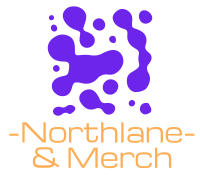The Ultimate Guide to Remote Online Notarization
RON is legal in all US states that have passed laws allowing the practice. Nevertheless, Notaries should be familiar with the regulations and requirements in their specific state before performing an online notarization.
RON enables individuals to get important documents notarized from anywhere without having to meet in person physically. Here are some of the main benefits:
Legality
Obtaining a traditional notarization requires signers to travel to a notary public in person, present a photo ID, and answer questions. This was a common practice during the COVID-19 pandemic, but it can be inconvenient for busy customers and challenging to meet in person for health reasons. With RON, signers connect with an authorized notary using audio-video technology to verify their identity by passing knowledge-based authentication and credential analysis, just like in a face-to-face interaction. This is important because it enables the notary to confirm that the signer appears before them, which is necessary for identity verification and notarization of legal documents. State laws govern RON, and most require notaries to be located in the state in which they are commissioned, but the document signers can be anywhere in the country or even the world. That’s thanks to interstate recognition, which is the promise that all states make to each other to recognize their official notarial acts.
Security
During the COVID-19 pandemic, lenders sought ways to streamline loan closings and expedite the process, making it more accessible to their customers. One of the biggest game-changers was remote online notarization (RON) – a simple and intuitive process that allows a Notary to witness a signature remotely through videoconferencing. RON is a great way to validate signatures from anywhere worldwide while reducing fraud. This is because of the critical security features built into the platform, such as credential analysis and identity proofing. These services ensure that a signer is who they say they are by reviewing their government-issued ID and verifying personal information from public and proprietary data sources. Additionally, all sessions are recorded for quality assurance and legal purposes.
Convenience
Notarizations typically involve essential life events like buying a home, settling estate matters, or creating a medical power of attorney. During the pandemic, it was even more critical that signers could get these documents notarized without having to travel and risk their health or put off necessary tasks. This is where remote online notarization (RON) came in. It allows a notary to perform a traditional notarization via an audio-video session with a signer using a webcam. RON is already available in over 35 states, and it is expected to be adopted widely across the country as more title companies and mortgage lenders adopt it. The process is quick and easy for both parties, allowing them to complete the notarial task conveniently.
Time-Saving
RON is a valuable technology for professionals in the real estate, mortgage, title, automotive, and legal industries. Adding a remote online notarization process to your eSignature platform allows you to complete transactions more quickly. You and your clients can upload their documents, verify their identity, and connect to a live notary to sign in fewer than four steps. In addition, if your clients are out of state or country, you can still complete a transaction with an eNotaryLive. This allows them to save time and money by bypassing the cost of travel fees for an in-person signing. In turn, this helps you reduce the number of in-person visits needed for your business to thrive.
Flexibility
Previously, a person needing to have their signature notarized would have been required to schedule an in-person meeting with a Notary and then take time off work or childcare duties to travel to the location. With RON, a signer can connect with a Notary via video conference from their home or office or anywhere they have WiFi. While it’s not feasible to switch to a completely flexible workplace, incorporating remote work can help employees feel more comfortable working remotely. As more and more people choose to get their documents notarized online, traditional processes will likely start to follow an S-curve of adoption. If you’re a Notary, this is an opportunity to get ahead of the curve by offering a convenient service for your clients.



